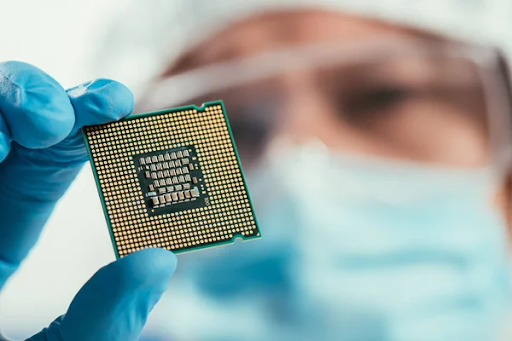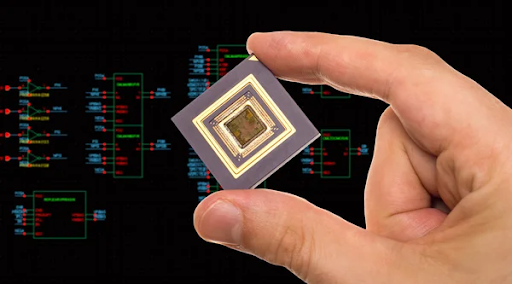Highlights
- Anti EMF chips are designed to reduce the effects of EMF radiations from electronic devices like smartphones, laptops, etc.
- Many scientists and health experts question the effectiveness of these chips, citing insufficient evidence to support manufacturers’ claims.
- Buyers are advised to be cautious, as many health and physics experts doubt the effectiveness of anti-EMF chips.
- Manufacturers claim these chips can reduce symptoms like headaches and sleep disturbances associated with EMF exposure.
Concerns about EMF have grown as we become more dependent on electronic devices. Could an anti-EMF chip reduce potential health risks?
An anti-EMF chip neutralize or reduces the electromagnetic fields emitted by electronic devices. Experts are working on its effectiveness; some claim it provides substantial protection, while others see it as a mere placebo.
In this guide, we’ll discuss this intriguing topic and explore whether investing in such a device is wise. Ready to learn more? Let’s get started!
What is Anti EMF Chip?
An anti EMF shield chip is designed to reduce or neutralize the effects of electromagnetic fields and radiation from electronic devices.
These chips are typically small, adhesive-backed patches that can be attached to devices like smartphones, laptops, tablets, and other electronic equipment, just like EMF Solutions laptop chip and device chip.
These chips primarily aim to mitigate the potential adverse health impacts of prolonged exposure to EMF radiation.
What Are the Types of Anti EMF Sticker Chip?

Anti EMF sticker chip Swiss made has different types, each claiming to offer unique benefits and mechanisms of action. However, the scientific evidence supporting their effectiveness varies widely. You can choose any of the following anti EMF chip according to your preferences:
- Quantum Energy Chips: These chips are said to use quantum energy principles to neutralize the effects of EMF radiation. They often contain elements like germanium and other minerals that purportedly work at a subatomic level to balance the body’s energy fields.
- Scalar Energy Chips: Based on the concept of scalar energy, this anti EMF chip protects by emitting scalar waves that neutralize the harmful effects of EMF radiation. They often claim to harmonize the frequencies and promote overall well-being.
- Bio-Energetic Chips: These chips are designed to interact with the body’s bio-field. They often incorporate technologies that strengthen the bio-field, enhancing the body’s ability to cope with EMF exposure.
- Negative Ion Chips: These chips generate negative ions, which counteract the positive ions produced by EMF radiation. Negative ions are thought to have various health benefits, including improving mood and energy levels.
- Shungite Chips: Shungite is a natural mineral known for its strong EMF shielding properties. Chips made from or incorporating shungite absorb and neutralize EMF radiation. They are often attached to electronic devices.
- Faraday Cage Chips: These chips work on the principle of a Faraday cage, which blocks electromagnetic fields. They contain materials that create a barrier to shield the user from EMF radiation. EMF Solutions home harmonizer and car harmonizer also follow the Faraday principle to protect against EMF radiation.
Is Anti EMF Chip Worth Buying Product?
Many scientists and health experts question the effectiveness of an anti EMF chip. They argue that there is insufficient evidence to support the claims made by manufacturers. The World Health Organization (WHO) and other regulatory societies have not endorsed these products, citing a lack of scientific validation.
Moreover, many physics and health science experts consider these products ineffective, as they do not alter the electromagnetic fields emitted by electronic devices. Studies have shown that the levels of EMF produced by most consumer electronics are generally within the safety limits established by international guidelines.
These experts say that the only reliable way to reduce EMF exposure is to minimize the use of electronic devices, maintain distance from them when possible, and use wired connections instead of wireless when feasible.
Additionally, measures like turning off devices when not in use and using speaker mode or earphones during calls can further reduce exposure.
Summary
As our reliance on electronic devices grows, concerns about EMF exposure have increased. Anti EMF chips are marketed as a solution to reduce these risks, with various types claiming different benefits. However, their effectiveness is still debated among scientists and health experts. While some believe these chips provide substantial protection, others view them as no more than placebos.
